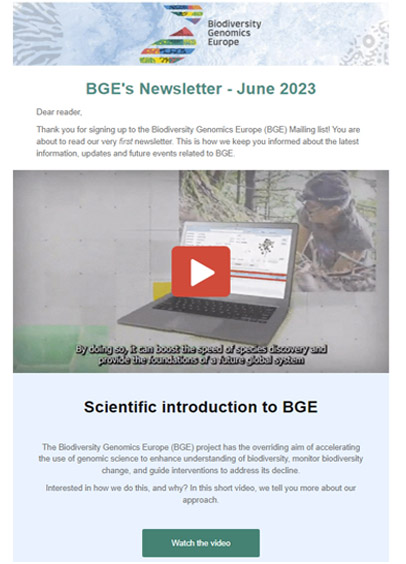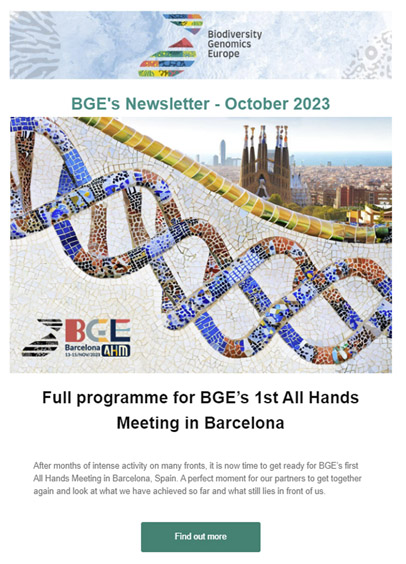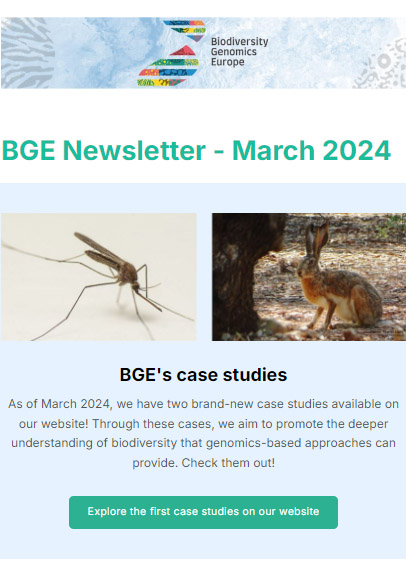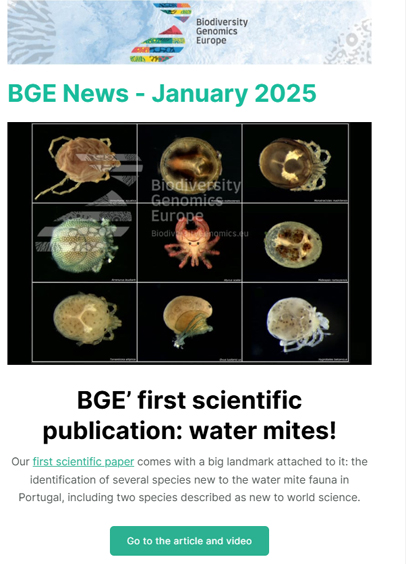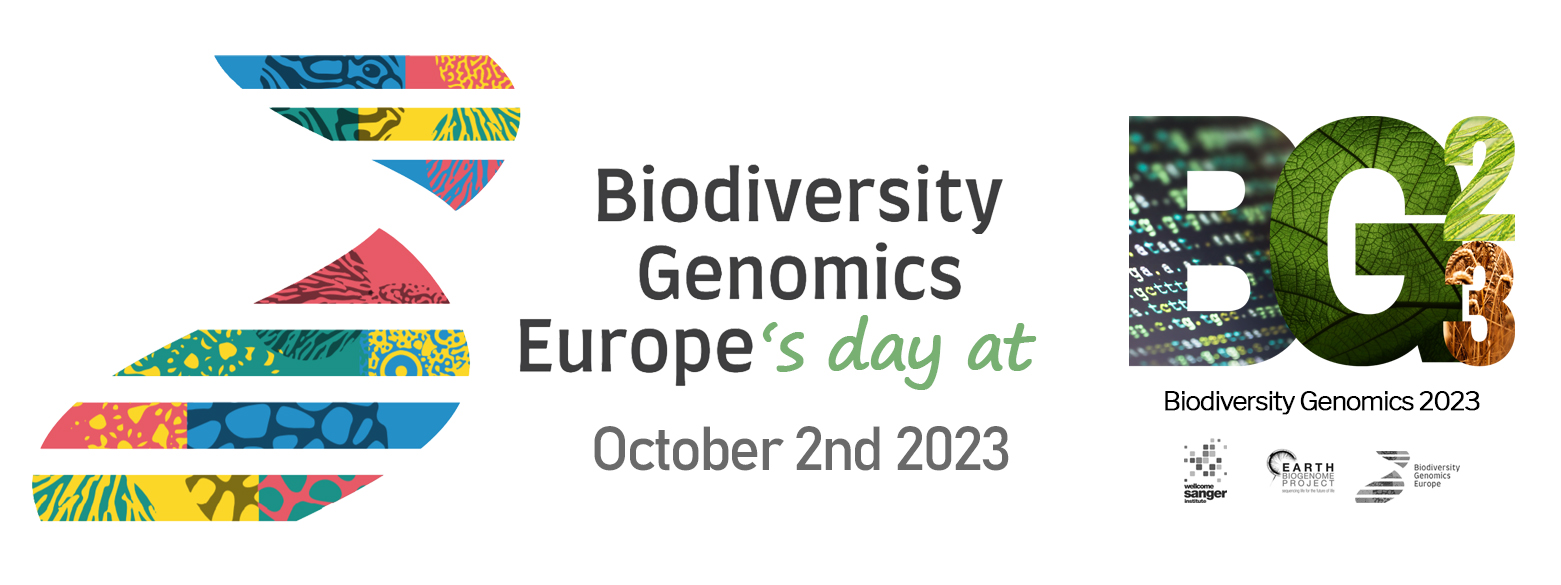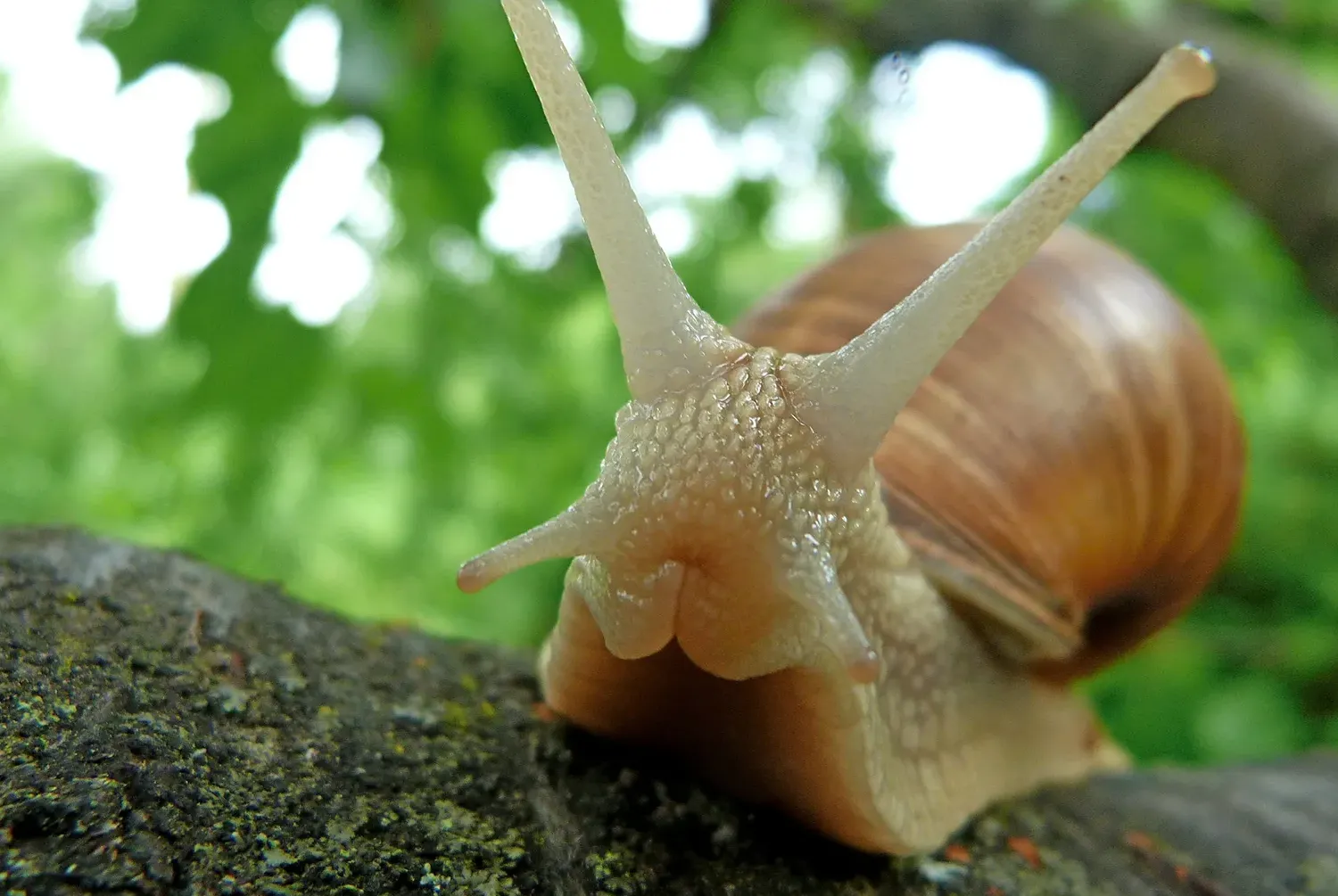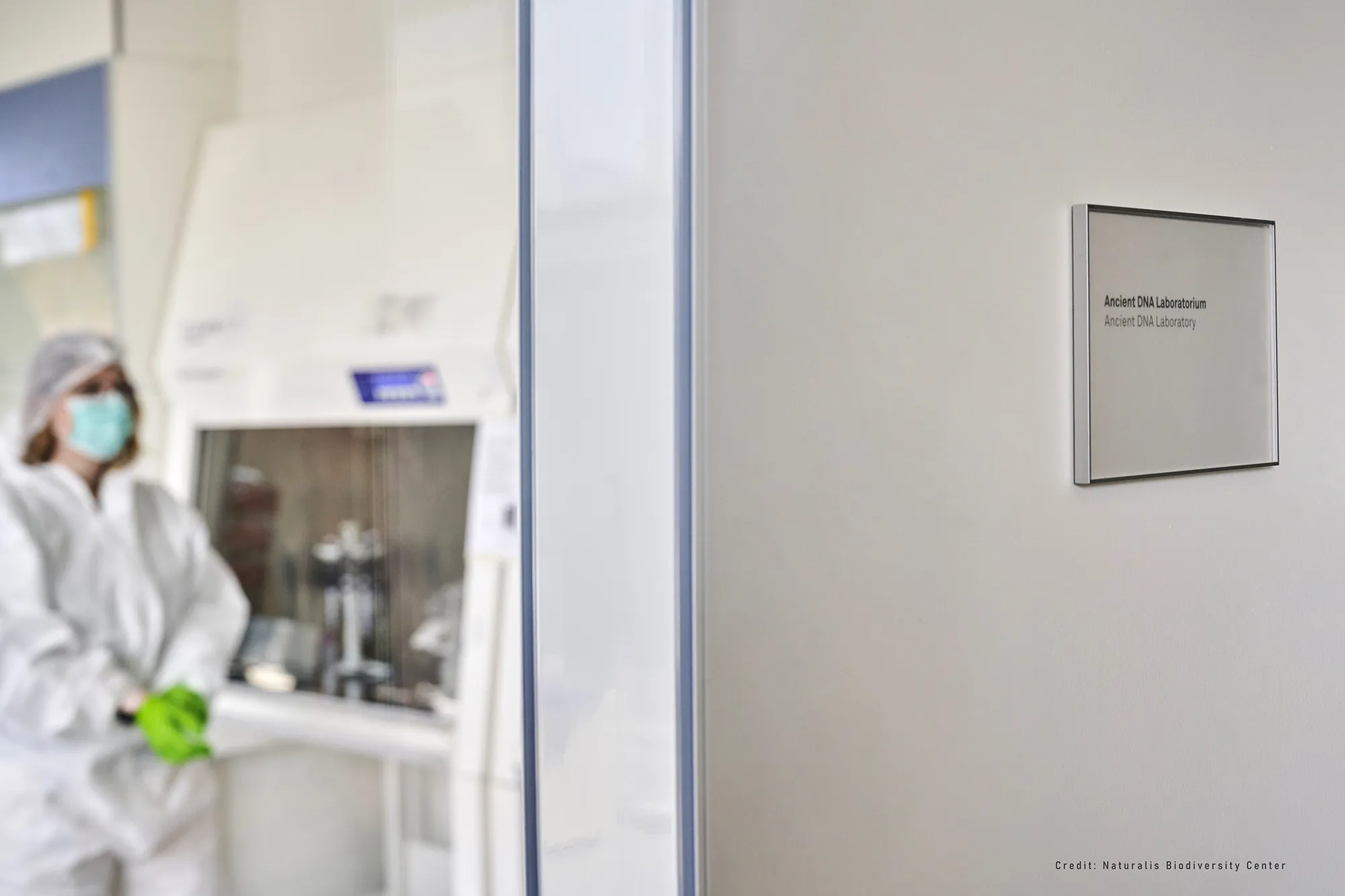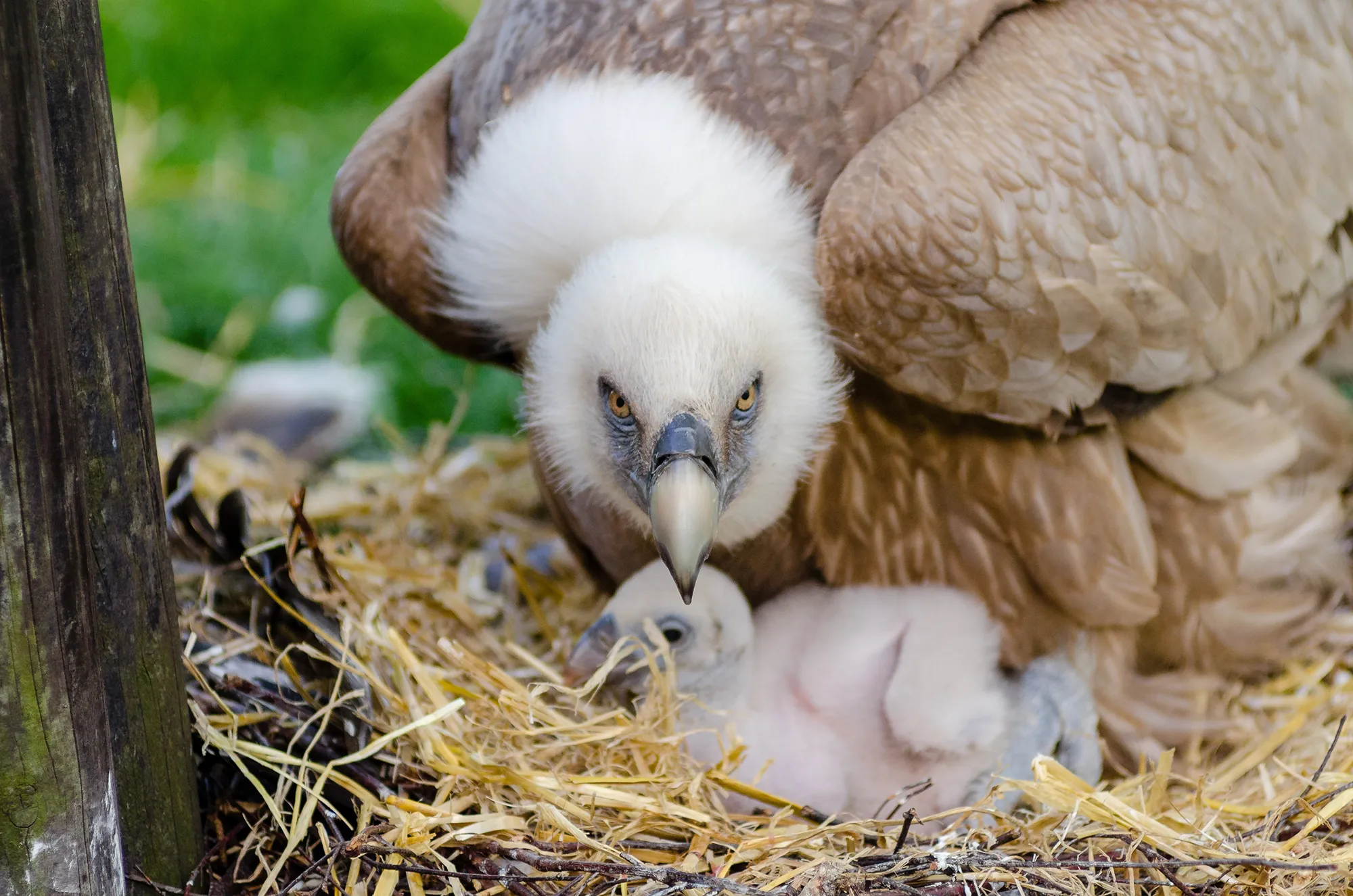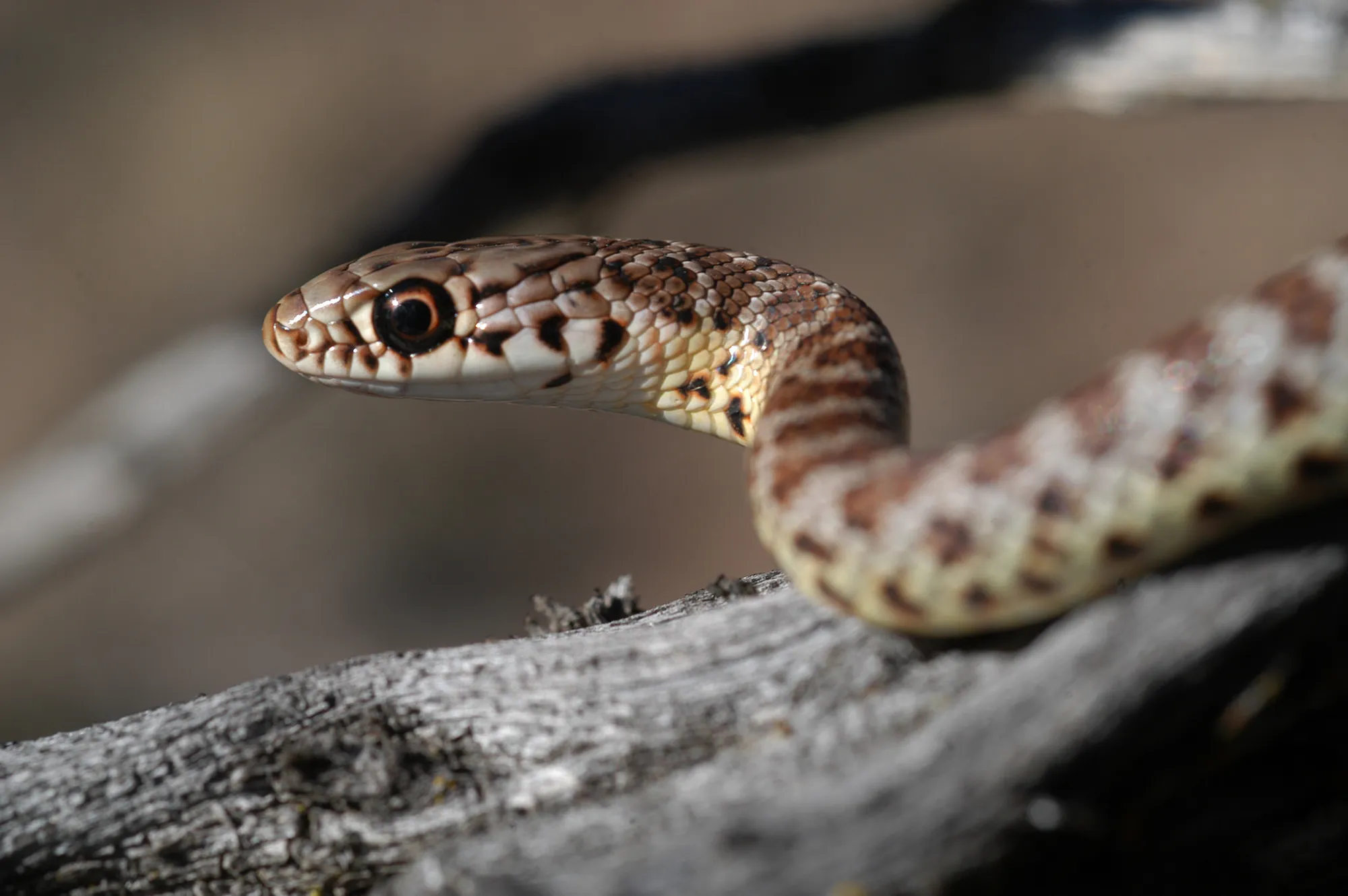BGE newsletters
Event: Biodiversity Genomics 2023
BG23 has become one of the most important events on biodiversity genomics around the world, and we were invited to co-organise its fourth iteration, last 2-6 October 2023.
BG23 devoted an entire day of sessions to BGE. It was a fantastic opportunity to understand the conceptual area of the project and take a look at key case studies of practical applications, opportunities for engagement, and exploitation of project results.
Click below to access a diversity of materials from the BGE sessions at BG23.
Video gallery
Peter Hollingsworth, BGE’s Deputy Director (DNA Barcoding stream), explains more about BGE’s aim to address biomonitoring at two different levels:
“The first of those is the monitoring of species, detecting what species are present and how the dynamics of those species change through time. The other strand of work focuses on reference genomes and here the focus of interest is not tracking species through time but enabling us to track changes in genetic diversity through time.”
Rosa Fernández from the Spanish National Research Council (CSIC) explains BGE’s aim to sequence full genomes for approximately 250 species from the Mediterranean basin hotspot:
“Through these genomic resources, the scientific community and society will be able to better understand the evolution of these species, how they are changing to habitat loss and eventually protect many of them”
Tyler Alioto from the Center for Genomic Regulation (CRG-CERCA) explains BGE’s aim to produce high quality and openly accessible genomic data for a wide range of European species
“This will be a resource that is available to the entire research community and hopefully promote the conservation of biodiversity, especially in Europe.”
Torbjørn Ekrem from the Norwegian University of Science and Technology, on BGE’s objective to fill the barcode reference library for the European biota
“What we will do as a start is to perform a gap analysis to see which species miss sequences in this database.”
Astrid Bohne, from the Liebniz Institute for the Analysis of Biodiversity Change (LIB) on the complexity of inter-country collection, transfer and storage of samples that BGE brings
“We are developing capacities that allows us to document this process and to display every information that accompanies our samples so that you can trace and connect your sample to genome data”
Dimitris Koureas, BGE Director on the non-strictly scientific impact of BGE:
“BGE is a mechanism through which we can go out from the limitations of national investments in genomics and into the European level”
Peter Hollingsworth, BGE deputy director (DNA Barcoding stream) on the challenges BGE addresses:
“As environmental change puts pressure on species, it is really important to understand how they are likely to respond to environmental pressures”
Camila Mazzoni, BGE deputy director (Genome Sequencing stream) on the application of genomics for biodiversity protection and restoration:
“Genomics has already revolutionized our lives with the Human Genome. Now, we are capable of revolutionizing what we know and can do for biodiversity, using the same technology”
Robert Waterhouse, BGE Joint Network Activities Coordinator on how BGE brings together the BIOSCAN Europe and European Reference Genome Atlas (ERGA) communities:
“If we are going to achieve the kind of scaling up that we want to achieve, we need to learn from each other, even if we have existed in parallel for some time”
Mark Blaxter, BGE Genome Sequencing Work Package leader on the importance of reference genomes:
“By doing a reference genome where we capture everything, everything becomes accessible for questioning. It tells us where we should focus our science”.
Don’t forget to subscribe to BGE’s Youtube channel to keep track of all our videos

